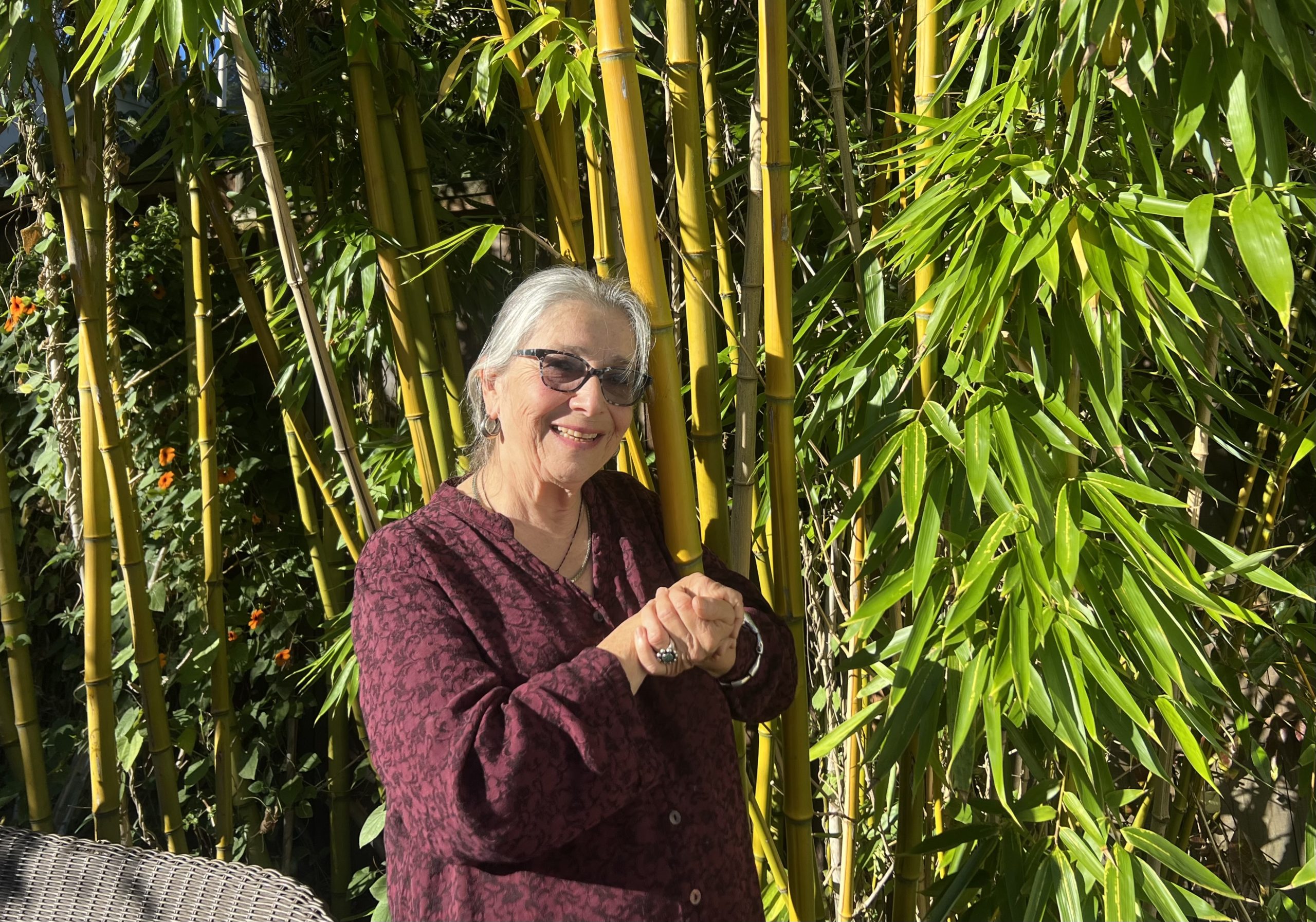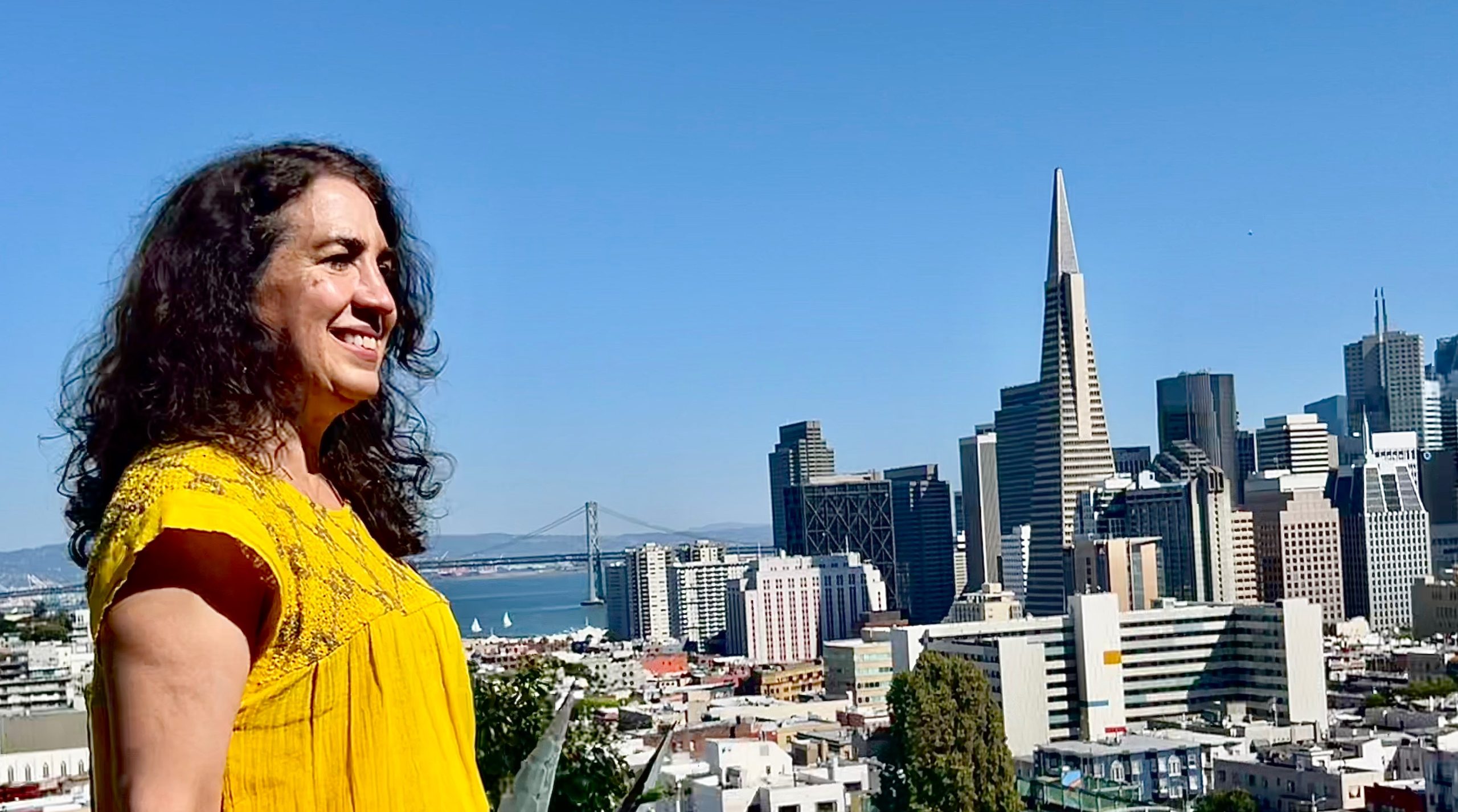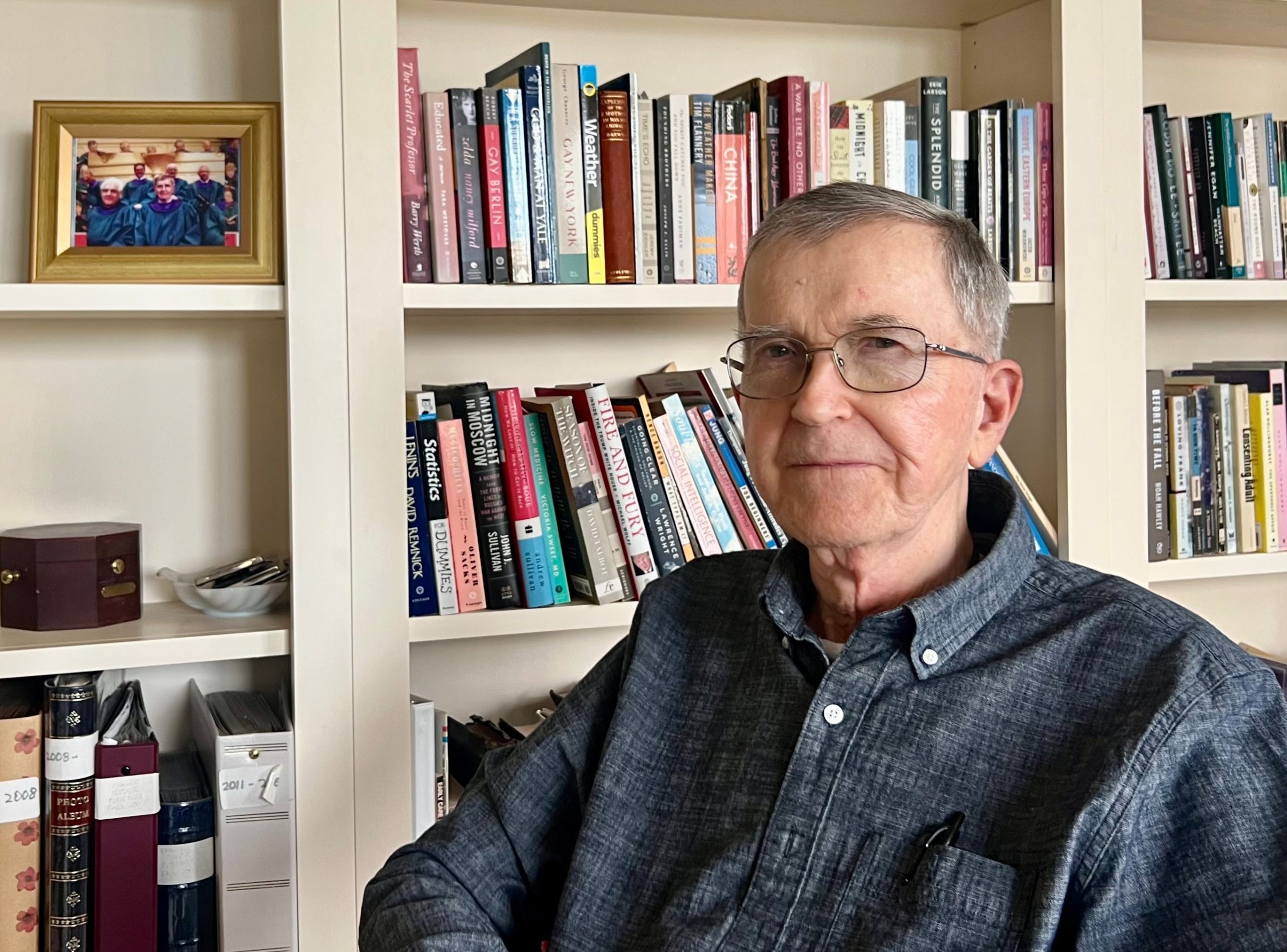Age no barrier to firefighting, says SFFD retiree, but staying in shape is essential
Starting a new career at 50 isn’t unusual these days. But when he reached the half-century mark, Steve Muller decided to leave his good-paying job as a painter and become a firefighter, one of the most physically demanding jobs you can imagine.
It turned out to be a good career move. Muller retired from the San Francisco Fire Department in July, a few months short of his 72nd birthday. Over his 21 years with the department, Muller was stationed at firehouses all over the city, fought countless fires, saved some lives, and had his share of scary moments.
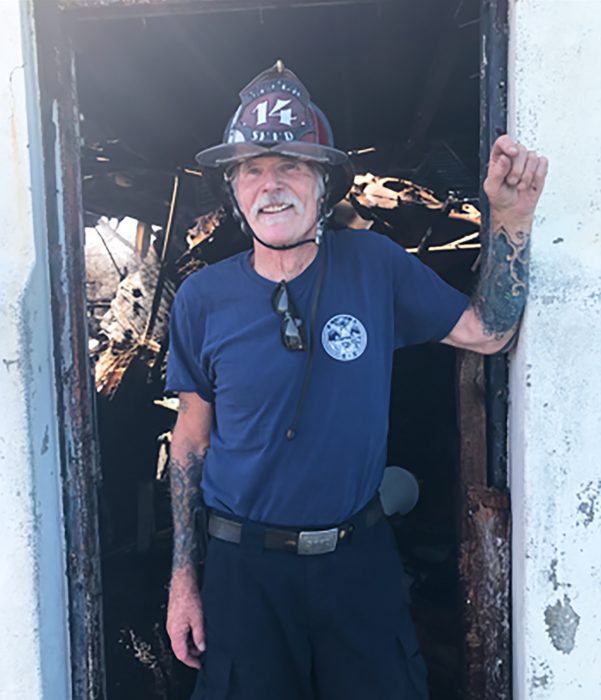
The native San Franciscan applied for the job on a whim, wanting to find a solid, blue-collar gig. It was that — and more. “I loved it. There are a lot of times you’re just sitting around and then the tone goes off and everyone jumps to it. Your adrenaline is pumping and it’s a thrill,” Muller said.
And yes, firefighters still slide down poles – there’s only one one-story firehouse in San Francisco – and leave their boots tucked inside their turnout pants to save precious seconds when that bell goes off.
Like most jobs, firefighting entails a good deal of routine, unexciting chores. The firehouse has to be cleaned every shift, equipment checked, groceries purchased, meals cooked, dishes washed. Unlike most jobs, though, there are moments of terror.
Muller said he was only seriously frightened a few times during his career. One hair-raising moment was when he was still a “probie,” firehouse speak for a rookie. His crew was called out to a three-alarm house fire near Sacramento Street. His lieutenant told him to grab a hose and follow him into the house.
A very ‘hairy’ situation
“We went in through the front door and there was smoke all the way down to the floor so we had to crawl to even see anything. It was like a maze. We went past the living room, then into the dining room. There were chairs and tables and obstacles. And the floor was really hot.”
Because Muller was a rookie, the more experienced firefighter was supposed to stay with him. Muller reached out to touch his hand. “All of a sudden he was gone and I freaked out when I realized I was alone.”
But Muller kept his wits about him, getting out of the smoke-filled home by following the hose line back to the front door. “It was kind of hairy,” he recalled.
San Francisco’s fire department has no mandatory retirement age, and anyone over 20-and-a-half can apply, no matter how old. Out of a total force of about 1,600, there are currently 47 active firefighters over 60 and two older than 70, according to the city’s human resources office.
Applying at 50 and serving well past the age most people retire is notable, but hardly unheard of, said Jon Baxter, a fire department spokesman. “We’ve hired lots of individuals in their late 40s and they’re very successful in providing important service to the city.”
But that’s not to say there aren’t particular challenges for older firefighters.
Most obvious is the ability to manage the physical demands of the job. Firefighters need to carry injured people and lug heavy tools and hoses up and down staircases and ladders while wearing a heavy coat and boots.
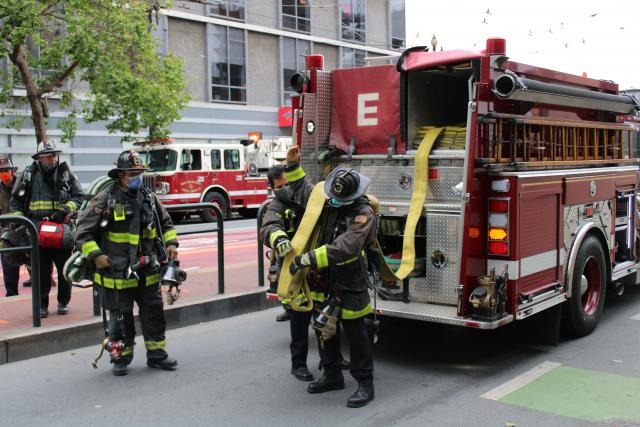
Muller stayed in shape by working out for an hour every workday. Retirement was largely driven by financial considerations, Muller said, but had he wanted to stay, “I could have done the job for another five years.”
Getting the job requires passing a demanding series of physical tests that mirror the demands of the job, A standard fitness test used by many fire departments includes a stair climb with 12.5 pounds of weight on each shoulder, dragging 200 feet of hose line, carrying heavy equipment, using a sledgehammer to simulate breaking down a door, and dragging a 165-pound mannequin 70 feet.
Teasing all right by me
Muller took and passed a similar test. “I would say it was tough; it was challenging for me, but probably less challenging for me than half the guys who were half my age.”
Most applicants don’t fare so well. According to Baxter, there are roughly 1,000 applicants for every vacant position in the department.
When he started in 2000, firefighters his age or a bit older were about to retire, but they weren’t all that scarce, Muller recalled. “But as the years went by, my fellow firefighters became younger and younger. The gap widened as the older guys retired.”
Even so, Muller never felt isolated or patronized by his younger colleagues. “Maybe people felt like they’d be in trouble if they made fun of me because (as an older person) I was part of a protected class. But I let them know that I had no problem with being teased about my age.”
Muller would sometimes go surfing or target shooting at a local gun range with his colleagues. Sometimes they’d get together and jam, with Muller playing bass guitar. And he rides a motorcycle. “I guess they thought I was cool.”
The department has changed quite a bit since Muller’s days as a probie. It’s more diverse – the last two chiefs have been women and the current chief, Jeanine Nicholson, is the first openly gay person to head the department — and in some ways better disciplined.
“I think I got in at the end of an era where drinking at the firehouse was accepted. And if you didn’t drink you were suspect,” Muller said. That’s no longer the case. “I’m sure there are people with alcohol problems that are still drinking on the job, but it’s rare. I haven’t seen anybody drink on the job for years, where it used to be a daily occurrence.”
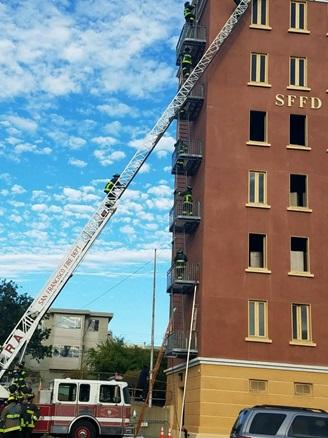
Some things haven’t changed. Firefighters still shop for groceries and prepare their own meals. They have to pay for them, too. “It bothers me that some people seem resentful when they see us shopping for meals, thinking we’re doing it at taxpayer expense. We’re not,” said Muller. At the end of the day, the person who bought the groceries divided up the bill, and everyone chipped in, he said.
The proudest day
What was his worst day on the job? “I was having some personal problems and it was hard to keep my mind on the job,” he said. As he backed a firetruck into the station he hit a post. “I didn’t hit it really hard, but I realized I did some damage. I was beside myself thinking I would have to go talk to the boss and say what I did.”
Figuring he could fix the damage himself, he then drove the truck around the block to work unobserved. But he quickly realized he couldn’t fix it, so he headed back to the firehouse. “My brain was just spinning and as I turned a corner I clipped a car.
“So I had to go back and tell them I got into two accidents in 10 minutes. I think that was my worst day.” The consequences, beyond the severe embarrassment, were not severe.
He had a much better day when his crew responded to a report of a man trapped beneath a collapsed staircase. When they arrived, it was unclear how to extricate him without causing further injury. “No one knew what to do,” Muller said. Thinking quickly, he grabbed a bottle jack from the firetruck and used it to clear the debris and save the trapped man. “Maybe someone else would have come up with another way to free him, but I was able to do it.
It was, he said, one of his proudest days as a firefighter.


